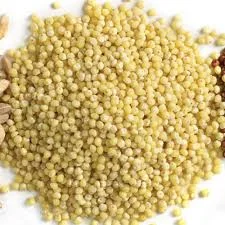Whole Grains for Heart Health
Whole grains have been promoted for years as a beneficial food to help support heart health and for good reason. Some of the key nutrients found in whole grains include fiber, vitamins - particularly B vitamins, including niacin, thiamin and folate and minerals - such as zinc, iron, magnesium and manganese. The exact amounts of nutrients differ depending on the type of grain.
Whole grain kernels have three parts. Bran which is made up of the outer shell of the grain and accounts for most of the fiber in whole grains. Endosperm, the middle layer of the grain, is mostly carbohydrates. The germ which is the inner layer of the grain contains most of the vitamins, minerals, protein and plant compounds. Grains can be rolled, crushed or cracked, but as long as these three parts are still present in their original proportion, the product is considered a whole grain. Refined grains have had the germ and bran removed, leaving only the endosperm. Without fiber from the outer portions of the grain, our bodies digest the refined grains quickly which can lead to a spike in our blood sugar. We also miss out on the health benefits of fiber. The high amount of fiber is what makes whole grains beneficial to our heart health because fiber helps lower our LDL or ‘bad’ cholesterol.
Studies have shown that the higher the consumption of whole grains in your diet, the better your chances of preventing heart disease. Be sure to include a variety of whole grains in your diet and when reading labels look for the stamp on the package which states that the product is 100% whole grain.
Denise Boyd Registered Holistic Nutritionist and Pilates Instructor
@denisebodypilates


